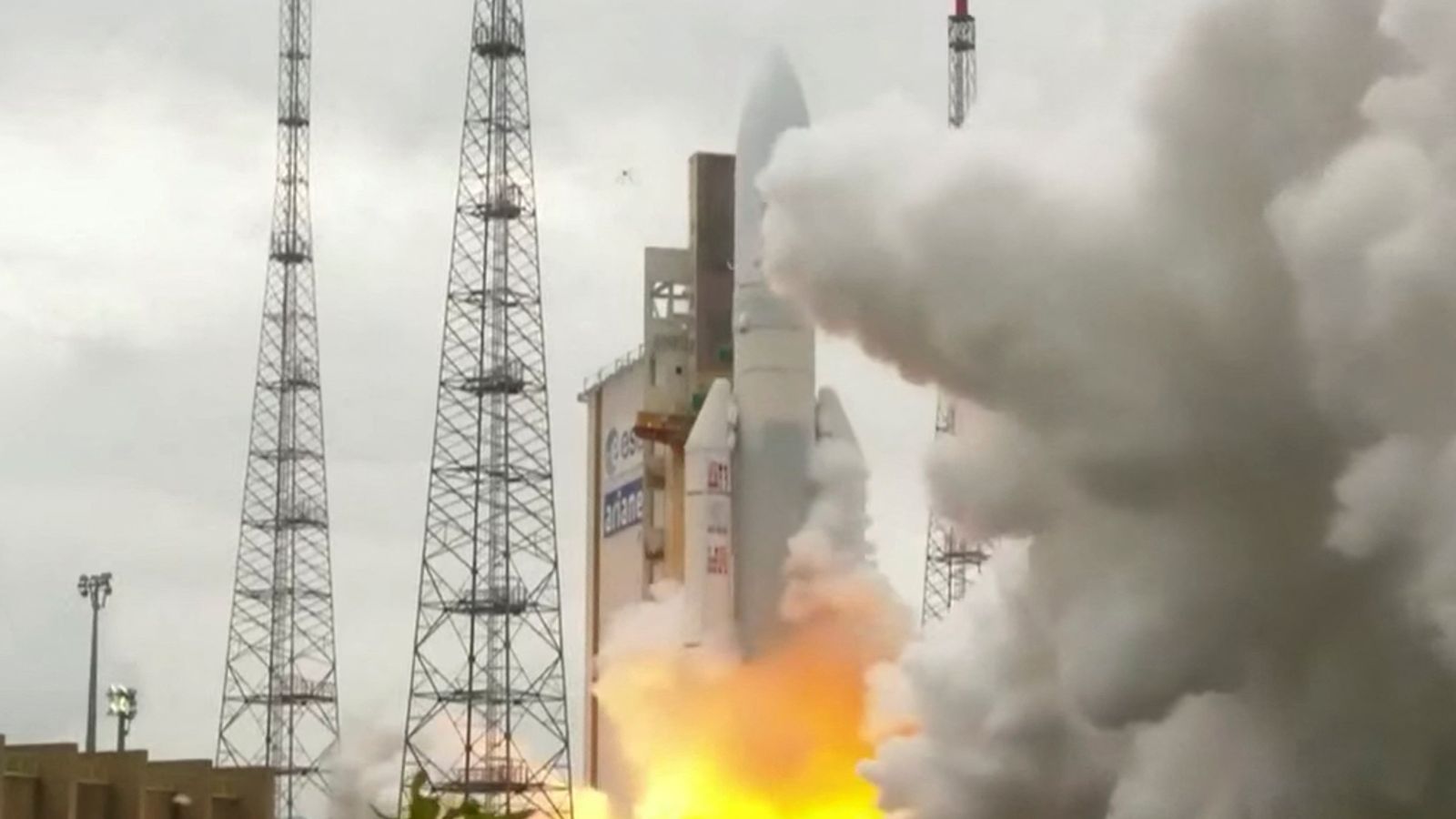A $10bn (£7.5bn) space telescope has left Earth on a mission to give humankind its first glimpse of the infant universe.
The James Webb Space Telescope (JWST), which is the world’s most powerful, set off attached to an Ariane rocket from the Kourou spaceport in French Guiana at 12.20pm on Christmas Day.
It is designed to answer unsolved questions about the universe, and the telescope will look further back in time than ever before to 400 million years after the Big Bang, the UK Space Agency has said.
It was originally meant to launch on 24 December, but it was delayed after high-level winds were forecast.
Controllers were given a 30-minute window to launch the rocket beginning at 12.20pm, and successfully hit the beginning of the time slot.
As the rocket launched, NASA spokesman Rob Navias said: “Lift-off, from a tropical rainforest to the edge of time itself, James Webb begins a voyage back to the birth of the universe.”
Operators described the launch as “perfect” after the telescope separated from the rocket.
James Webb Space Telescope: Most powerful telescope in history launches – watch stream here
Do aliens exist? The key mysteries that could be unlocked after the James Webb telescope launched
NASA probe ‘touches the sun’ in landmark spaceflight
Do aliens exist? The key mysteries that could be unlocked after the James Webb telescope launched
Preparation for the project began in 1996 and construction was completed in 2016.
The launch was first scheduled for earlier in December but it suffered several setbacks, including a communications issue and an incident requiring extra rounds of checks on the telescope.
The JWST’s partners are the European Space Agency, NASA and the Canadian Space Agency.
Scientists from Durham University are among a team of 50 researchers from around the world taking part in the Cosmos-Webb programme, which will use JWST to survey a patch of sky near the constellation Sextans.
The cosmologists will map the dark matter around galaxies with the aim of unlocking the secrets of the mysterious substance that makes up the majority of matter in the universe.
Scientists said a “new era of astronomy” could be brought in with the launch.
The device is expected to profoundly transform scientists’ understanding of the universe and our place in it and the infrared telescope has been hailed as the premiere space-science observatory of the next decade.






















